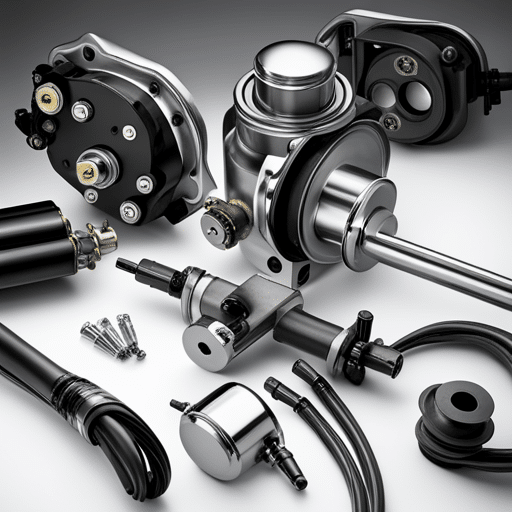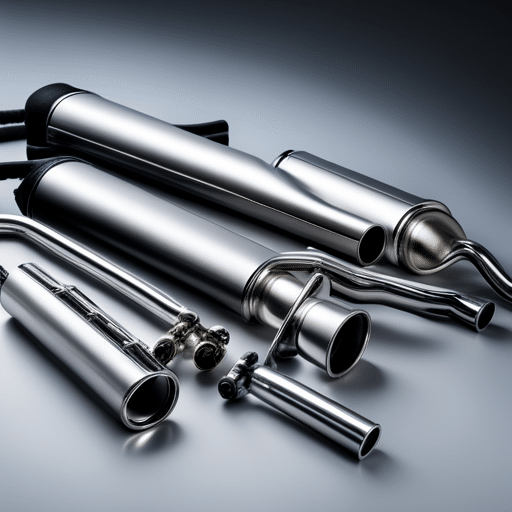
Losing power in a car while driving can be a distressing experience, especially if it happens on a busy road or in fast-moving traffic. This issue is often a sign of underlying mechanical or electrical problems in your vehicle that require immediate attention. In this article, we will explore the common causes of power loss while driving, how to identify them, and what you can do to fix the problem.
Understanding Power Loss in Cars
[lasso id=”5401″ link_id=”1903″ ref=”amzn-noco-boost-plus-gb40-1000a-ultrasafe-car-battery-jump-starter-12v-battery-pack-battery-booster-jump-box-portable-charger-and-jumper-cables-for-6-0l-gasoline-and-3-0l-diesel-engines-gray” sitestripe=”true”]In the context of a car, losing power often refers to the vehicle’s inability to maintain speed, accelerate effectively, or respond promptly to the driver’s inputs. The car’s power is generated by the engine, which combusts fuel to create a force that is then converted into motion by the transmission. If any part of this system is not working correctly, it can lead to a noticeable decrease in the car’s power.
Losing Power in Car While Driving: Common Causes
Issues with the Fuel System

The fuel system is crucial for the proper functioning of the car. Problems like a clogged fuel injector, a failing fuel pump, or a dirty fuel filter can restrict the amount of fuel reaching the engine, resulting in a loss of power.
[lasso id=”5401″ link_id=”1904″ ref=”amzn-noco-boost-plus-gb40-1000a-ultrasafe-car-battery-jump-starter-12v-battery-pack-battery-booster-jump-box-portable-charger-and-jumper-cables-for-6-0l-gasoline-and-3-0l-diesel-engines-gray” sitestripe=”true”]Problems with the Ignition System
If your ignition system is malfunctioning, it can interrupt the engine’s power. This could be due to faulty spark plugs, a worn-out ignition coil, or issues with the ignition control module.
Malfunctioning Transmission
[lasso id=”5401″ link_id=”1905″ ref=”amzn-noco-boost-plus-gb40-1000a-ultrasafe-car-battery-jump-starter-12v-battery-pack-battery-booster-jump-box-portable-charger-and-jumper-cables-for-6-0l-gasoline-and-3-0l-diesel-engines-gray” sitestripe=”true”]The transmission is responsible for transferring the engine’s power to the wheels. If it’s failing or not operating correctly, it can cause the car to lose power.
Exhaust System Issues

An obstructed or damaged exhaust can cause excessive back pressure in the engine, reducing its efficiency and power.
Electronic Faults
Modern cars rely heavily on electronics. Faults in electronic systems, such as the engine control unit (ECU), can lead to a loss of power.
Losing Power in Car While Driving: Common Symptoms
[lasso id=”5401″ link_id=”1906″ ref=”amzn-noco-boost-plus-gb40-1000a-ultrasafe-car-battery-jump-starter-12v-battery-pack-battery-booster-jump-box-portable-charger-and-jumper-cables-for-6-0l-gasoline-and-3-0l-diesel-engines-gray” sitestripe=”true”]The symptoms of power loss in cars can vary depending on the underlying issue. However, some common signs include the car stalling, difficulty accelerating, poor fuel economy, and unusual noises.
Diagnosing Power Loss in Cars
Professional diagnosis by a mechanic is often the most reliable way to identify the cause of power loss in your car. They have the knowledge and tools to accurately diagnose the issue. However, you can also do some self-diagnosis by observing the symptoms and checking the condition of the fuel system, ignition system, transmission, and exhaust.
Preventing Power Loss in Cars
Preventing power loss involves regular maintenance and inspections of your vehicle. Ensuring you use high-quality fuel, regularly replacing worn-out parts, and taking good care of your transmission system can help prevent power loss.
[lasso id=”5401″ link_id=”1907″ ref=”amzn-noco-boost-plus-gb40-1000a-ultrasafe-car-battery-jump-starter-12v-battery-pack-battery-booster-jump-box-portable-charger-and-jumper-cables-for-6-0l-gasoline-and-3-0l-diesel-engines-gray” sitestripe=”true”]Fixing Power Loss Issues
If your car is losing power while driving, it’s crucial to get it checked and fixed by a professional mechanic. Some issues might be fixable with DIY methods, but most will require professional attention to ensure your vehicle is safe to drive.
FAQ: Losing Power in Car While Driving

Q: Why is my car not accelerating when I press down on the gas?
A: There could be several reasons for this issue, including a clogged exhaust or fuel pump, or a faulty spark plug. These problems restrict your engine’s ability to generate power, resulting in slower acceleration. It’s best to have your car checked by a professional to accurately diagnose and fix the problem.
[lasso id=”5401″ link_id=”1908″ ref=”amzn-noco-boost-plus-gb40-1000a-ultrasafe-car-battery-jump-starter-12v-battery-pack-battery-booster-jump-box-portable-charger-and-jumper-cables-for-6-0l-gasoline-and-3-0l-diesel-engines-gray” sitestripe=”true”]Q: What are the signs of a bad fuel pump?
A: Some signs that you may have a faulty fuel pump include inconsistent acceleration, the car dying under a heavy load, and sputtering during operation. If you notice any of these symptoms, it’s advisable to have your fuel pump inspected and, if necessary, replaced to restore your car’s performance.
Q: Could the air conditioning be draining power from my car?
A: Yes, running the air conditioning does use some of your engine’s power. If you’re driving on a hot day and your car seems to lack its usual power, you might want to try turning off the air conditioning to see if it makes a difference.
Q: What does it mean if my engine warning light is on and my car is losing power?
A: If your engine warning light is on, it typically means there’s a significant problem that needs to be addressed. Modern cars often enter a “limp mode” when a problem is detected, which restricts power to prevent further damage. If your engine warning light is on, you should get your vehicle inspected by a qualified mechanic as soon as possible.
Q: How can a turbocharger problem affect my car’s power?
A: Turbochargers work by increasing air pressure in the combustion chamber, allowing more fuel to be added, which in turn generates more power. If something goes wrong with the turbocharger, such as dirt entering the mechanism or a hole in the tubing, it can significantly impact your engine’s performance and power.
Q: How can an overheated cooling system cause a loss of power in my car?
A: The cooling system is designed to maintain the engine at a specific temperature. If it’s overloaded and overheating, the cooling fan will work harder, draining power from the engine and reducing performance levels.
Q: How can a blocked catalytic converter or diesel particulate filter cause power loss in my car?
A: Both a catalytic converter and a diesel particulate filter (DPF) are designed to filter harmful emissions from your car’s exhaust. If they’re blocked, it can prevent gases from exiting the engine efficiently, which can limit your engine’s ability to rev to its maximum capacity, leading to a loss of power.
Q: What impact can timing belt or chain problems have on my car’s power?
A: If the timing belt or chain is not properly maintained or installed, or if it doesn’t have the correct tension, it can cause the engine valves to open and close at incorrect intervals. This can result in a loss of power, often accompanied by a rattling noise from the engine.
Q: What can cause a backfiring exhaust and power loss in my car?
A: Backfires are caused by an incorrect fuel to air ratio, leading to small explosions that result in power loss when accelerating. Causes for a backfiring exhaust include problems with the fuel pump, leaks in the fuel tank, or issues with the carburetor.
Q: What should I do if my car loses power while driving?
A: It’s important to get your car inspected and assessed by a qualified mechanic as soon as possible to ensure that it’s safe to drive and to prevent further damage.
Q: Can my driving habits contribute to my car losing power?
A: Yes, aggressive driving such as fast starts, hard stops, and high-speed driving can put extra stress on your car and cause it to lose power over time. Practicing smooth and steady driving can help maintain your car’s power and overall performance.
Q: Can a low battery cause a loss of power in my car while driving?
A: While a low battery won’t typically cause your car to lose power while it’s already running, it can make it difficult to start your car and may affect the performance of electrical systems, which can indirectly affect the power of the car.
Q: How often should I replace my fuel filter to avoid power loss in my car?
A: The frequency can vary based on your specific car and driving conditions, but a common recommendation is to replace your fuel filter every 2 years or 30,000 miles. Always refer to your vehicle’s owner’s manual for specific maintenance schedules.
Q: Can an old spark plug cause power loss in my car?
A: Yes, old or dirty spark plugs can lead to inefficient combustion, which can in turn lead to a loss of power. It’s generally recommended to replace your spark plugs every 30,000 to 90,000 miles, depending on your vehicle and the type of spark plugs it uses.
Q: How can I prevent my car from losing power in the future?
A: Regular maintenance is key to preventing power loss. This includes regular oil changes, replacing the air and fuel filters as recommended, keeping the cooling system in good working order, and regularly checking and replacing spark plugs and other ignition parts as necessary. If you notice any changes in your car’s performance, it’s important to have it checked by a mechanic to identify and address any issues early.
Q: Could the weight of my car affect its power?
A: Yes, the more weight a car has to carry, the more power it needs to move. If you’re carrying heavy loads frequently, it could make your car feel less powerful. Removing unnecessary weight can help improve your car’s power and fuel efficiency.
Q: How does altitude affect my car’s power?
A: At high altitudes, the air is thinner, which can affect your car’s performance. Engines require a specific amount of air for combustion, and when that air is thin, it can result in less power. Many modern cars have systems that adjust to these conditions, but you may still notice a decrease in power at high altitudes.
Q: Can a change in weather or temperature affect my car’s power?
A: Yes, extreme temperatures, both hot and cold, can affect your car’s performance. Cold weather can thicken your car’s fluids and make the battery work harder, while hot weather can put additional stress on the cooling system. Both situations can lead to a feeling of power loss in your car.
Q: Can regular cleaning of my car’s engine improve its power?
A: Yes, keeping your engine clean can help improve its performance and power. Dirt and grime can cause components to work harder and can lead to overheating, both of which can cause power loss. Regular cleaning can help keep your engine running efficiently.
Q: Are there any warning signs before my car starts losing power?
A: Some potential warning signs include a decrease in gas mileage, the engine running rough or stalling while the car is at idle, a lag in acceleration, or the check engine light coming on. If you notice any of these signs, it’s best to have your car checked by a professional as soon as possible to prevent further power loss.
Q: Can a transmission issue cause a loss of power in my car while driving?
A: Yes, if your transmission is not shifting properly, it could affect your car’s power. A transmission that doesn’t shift into the right gear at the right time can make your car feel sluggish or lacking in power.
Q: Can a failing alternator lead to a loss of power in my car?
A: While a failing alternator won’t directly cause your engine to lose power, it can affect other systems like your car’s electrical system which can then lead to a perceived loss of power, especially if it’s causing your battery to die.
Q: How can I tell if my car’s loss of power is a serious issue?
A: If your car is losing power frequently, or if the loss of power is accompanied by other symptoms like unusual noises, smoke, vibrations, or warning lights on your dashboard, it’s likely a serious issue and you should have your car inspected by a professional immediately.
Q: What role does the throttle body play in my car’s power, and can issues with it lead to power loss?
A: The throttle body controls the amount of air that enters the engine, which is vital for the combustion process. If there’s a problem with the throttle body, such as a blockage or a failure in its sensor, it can disrupt this process and cause your car to lose power.
Q: How do I know if the loss of power in my car is due to a clogged exhaust?
A: Some signs of a clogged exhaust include decreased fuel efficiency, a burning smell from the engine bay, and a weak acceleration. Your car may also run hotter and have a rough idle.
[lasso id=”5401″ link_id=”1909″ ref=”amzn-noco-boost-plus-gb40-1000a-ultrasafe-car-battery-jump-starter-12v-battery-pack-battery-booster-jump-box-portable-charger-and-jumper-cables-for-6-0l-gasoline-and-3-0l-diesel-engines-gray” sitestripe=”true”]Q: Can a bad oil filter lead to a loss of power in my car?
A: Yes, if your oil filter is clogged or dirty, it can restrict the flow of oil to your engine, causing it to run inefficiently and potentially lose power.
Q: Can a problem with my car’s ignition system cause it to lose power while driving?
A: Yes, a problem with your car’s ignition system, such as a worn-out ignition coil or a faulty spark plug, can disrupt the engine’s ability to combust fuel properly, leading to a loss of power.
Q: Can an issue with my car’s suspension cause a loss of power?
A: While a suspension problem won’t directly cause your car to lose power, it can make your car feel less responsive or harder to handle, which might feel like a loss of power, especially when turning or navigating bumps.


